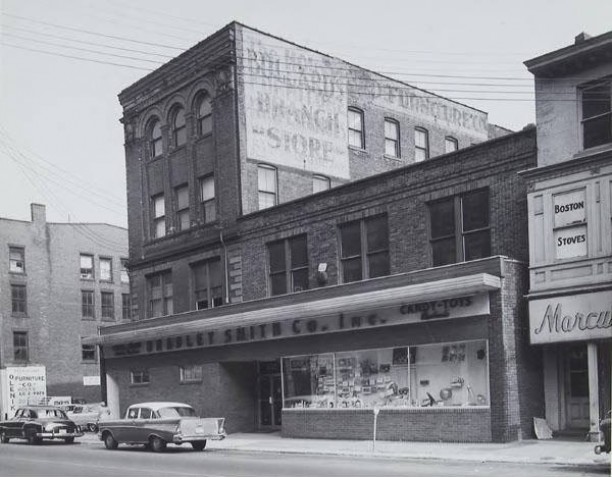On October 13, 1931, the name “Lolly Pop” was officially registered to the Bradley Smith Company of New Haven by the US Patent and Trademark Office. The company had started producing its first Lolly Pops in 1908, but it took years to convince the patent office to grant an exclusive right to the name. Though the word lollipop is a generic term today, George Smith was the first to apply it to hard candy on a stick. Smith was inspired by the success of a local confection being produced in West Haven called Reynolds Taffy—a chocolate caramel taffy on a stick. The name itself, Lolly Pop, was reportedly inspired by that of a racehorse Smith had seen at a local fair. Unfortunately, the Patent Office found the term lollipop used in an English dictionary published in the early 1800s, where it was described as “a hard sweetmeat sometimes on a stick,” and they refused Bradley Smith’s initial registration. The trademark was finally granted after the company proved that Lolly Pop was an original spelling and its first use. During the long registration process many competitors used the name freely until Bradley Smith won. Over the years the term Lolly Pop and its variant spelling Lollipop became interchangeable and so universally used that the trademark could not be maintained.

Word mark from the original Bradley Smith Co. trademark application
Employees at the Bradley Smith Company first produced Lolly Pops by cutting off a chunk of warm hard candy and jabbing, or pegging, in a stick by hand. In the process of inserting the stick the candy was formed and slightly flattened out by the palm. This changed when Max Buchmuller, a foreman for the company, invented and patented a machine to insert the sticks. The machine featured a continuous chain of split molds, which when filled and closed shaped the Lolly Pop, and an automated plunger, which pushed the sticks into the candy. The machines allowed the company to produce 125 Lolly Pops a minute. Mechanical improvements made to keep up with demand eventually resulted in a production capacity of 750 Lolly Pops per minute. Bradley Smith distributed the sweets across the country and around the world, shipping them everywhere from England to China. The first Lolly Pops sold for a penny.









